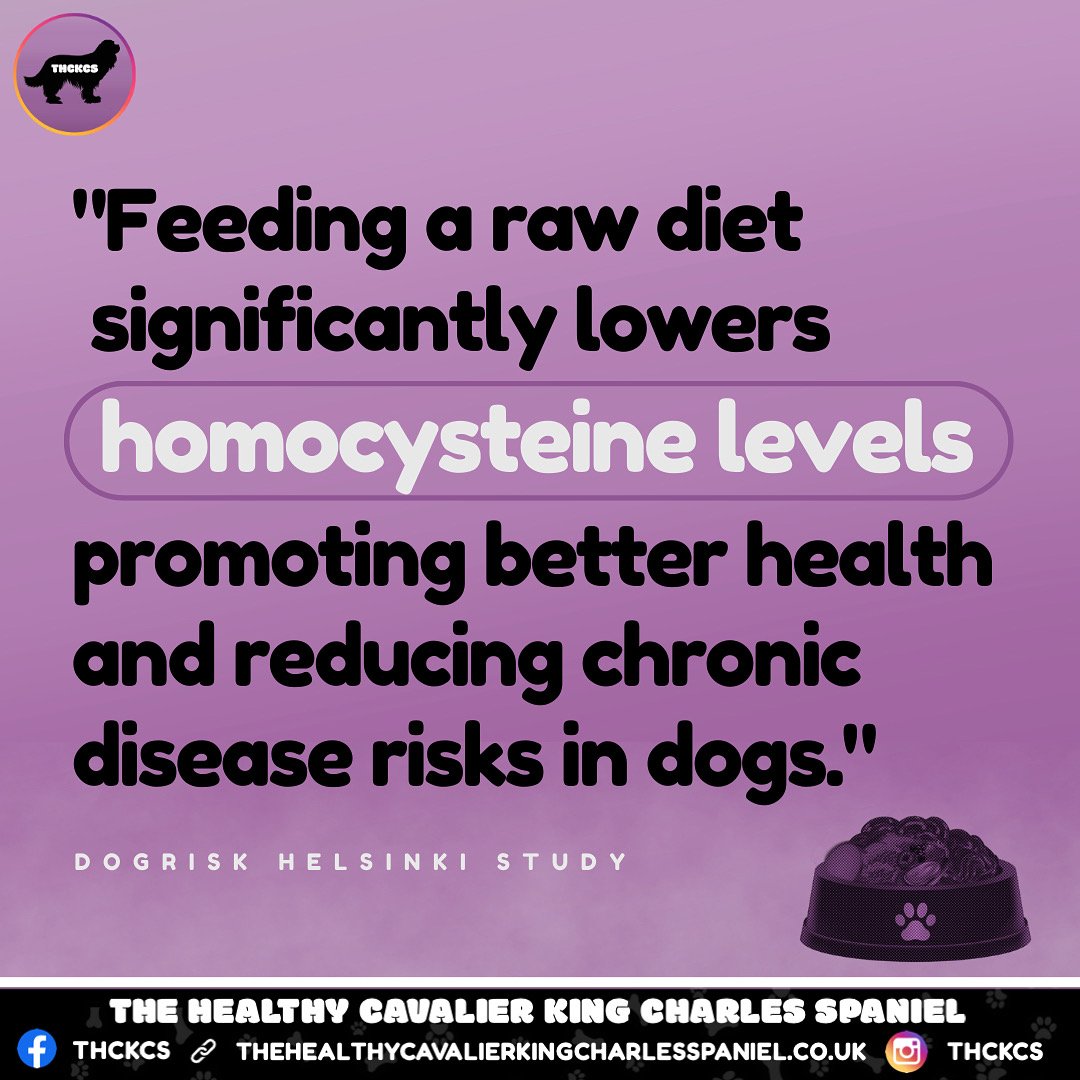Lower Levels of Homocysteine in Raw-Fed Dogs: Insights from the Dogrisk Helsinki Study
Homocysteine, a by-product of amino acid metabolism, is a recognised marker for inflammation and potential precursor to various health conditions, such as cardiovascular and inflammatory diseases. In dogs, elevated homocysteine levels have been linked to increased health risks. The Dogrisk Helsinki study provides valuable insights into how diet, specifically raw versus dry kibble diets, can influence these levels and, consequently, overall canine health.
The Dogrisk Helsinki Study
This comprehensive study, led by the Dogrisk research group at the University of Helsinki, focused on comparing the health outcomes of dogs fed raw meat-based diets (RMBD) versus those consuming dry kibble diets (KD). The study evaluated a range of health markers, with particular attention to homocysteine levels, a critical indicator of inflammation and disease susceptibility.
Key Findings
1. Homocysteine Levels in Raw-Fed vs. Dry-Fed Dogs:
• Dogs consuming RMBDs exhibited significantly lower homocysteine levels, averaging 0.17mM.
• In contrast, dogs on KD had homocysteine levels around 1.57mM, nearly ten times higher than those on RMBDs.
• Notably, dogs transitioning from RMBDs to KD experienced a substantial increase in homocysteine levels, from 0.17mM to 0.77mM.
• Conversely, those switching from KD to RMBDs saw a marked decrease in homocysteine, dropping from 1.57mM to 0.30mM.
2. Inflammation and Gene Expression:
• The study also observed elevated levels of histamine-related gene expression in the skin of KD-fed dogs, indicating higher susceptibility to itchiness and allergic reactions. This suggests that KD may exacerbate inflammatory responses, potentially leading to chronic skin conditions.
3. Gut Microbiota and Serum Metabolomics:
• Beyond homocysteine, RMBDs influenced gut microbiota composition and serum metabolite profiles. The microbiota diversity and metabolite levels varied significantly between diet groups, reflecting the distinct macronutrient contents of RMBDs and KD. These differences in gut microbiota could further impact immune function and overall health.
Implications for Canine Health
The findings underscore the potential benefits of RMBDs in reducing systemic inflammation, as evidenced by lower homocysteine levels. This reduction may correlate with a lower risk of chronic inflammatory diseases, aligning more closely with the natural dietary patterns of wild canines. However, it’s essential to balance these benefits with considerations of food safety, particularly regarding potential pathogen exposure and nutritional adequacy.
Conclusion
The Dogrisk Helsinki study provides compelling evidence that a raw diet can significantly lower inflammation markers like homocysteine in dogs. These findings suggest that a species-appropriate raw diet could offer health benefits, including reduced inflammatory responses and improved overall well-being. However, further research is needed to explore long-term effects and ensure that raw diets meet all nutritional requirements safely.
For more detailed information, access the full study here.

